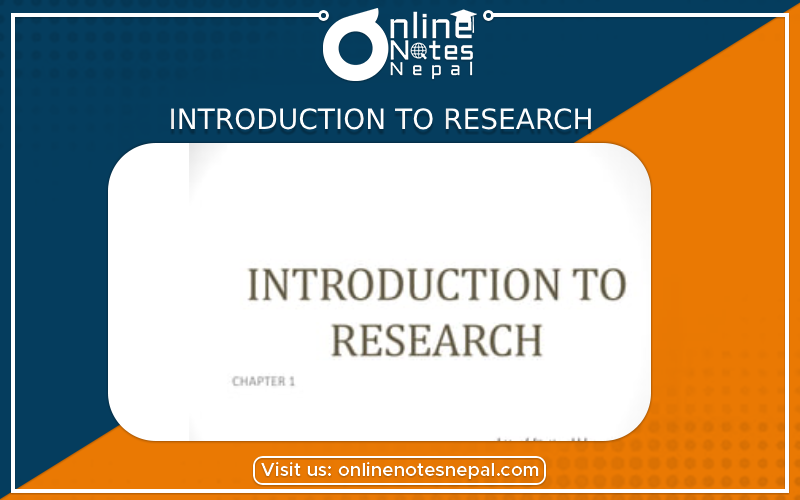Published by: Anu Poudeli
Published date: 14 Jul 2023

An Overview of Research
A systematic and organized process of researching, evaluating, and interpreting material in order to discover new knowledge, validate current knowledge, or address specific issues is known as research. It is an important part of the scientific method and is used in a variety of disciplines like as academia, business, healthcare, technology, and social sciences. This overview will cover the major concepts and steps involved in the research process.
Purpose of Research:
Research is undertaken for a variety of reasons, including:
Research Questions and Objectives:
The formation of research questions or objectives is the first step in every research effort. These questions define the study's scope and direction, and they guide the researcher throughout the research process. Specific, measurable, achievable, relevant, and time-bound research questions (SMART) should be used.
Research Design :
The research design refers to the overall strategy and plan for carrying out the investigation. It describes the data collection and analysis methodologies, procedures, and techniques that will be used. The nature of the study questions, available resources, and ethical issues all influence the research design. Experiential, observational, survey-based, qualitative, and mixed-method approaches are all common study designs.
Data Collection :
Data collection entails acquiring appropriate information to answer the study questions. Data can be acquired using a variety of approaches, depending on the research plan, such as surveys, interviews, observations, experiments, focus groups, or existing records. Researchers should use proper measurement methods and sampling techniques to verify the data's reliability and validity.
Data Analysis:
Once the data has been acquired, it must be evaluated in order to derive useful findings. Data analysis entails organizing, interpreting, and summarizing the information gathered. Depending on the type of data and study aims, statistical procedures, qualitative analytic methods, or a combination of both may be used. The outcomes must be presented objectively and accurately.
Interpretation and conclusion:
Interpreting research findings entails making meaning of the findings within the context of the research questions and prior knowledge. Researchers must study the data critically, detect patterns or trends, and form conclusions based on the facts. When evaluating the findings, it is critical to keep the study's limitations and potential biases in mind.
Communication and publication:
Effective communication of research findings is critical for knowledge sharing, fostering additional debate, and contributing to the body of literature. Researchers may give talks at conferences, publish articles in scholarly journals, produce reports, or establish other kinds of dissemination. During the publication process, ethical considerations and intellectual property rights must be observed.
Each study builds on prior knowledge and raises new concerns for future inquiries, making research an iterative process. Intellectual curiosity, critical thinking, attention to detail, and commitment to ethical principles are all required. Scholars and practitioners can contribute to the advancement of knowledge and make substantial contributions to their respective professions by undertaking rigorous and well-designed research.